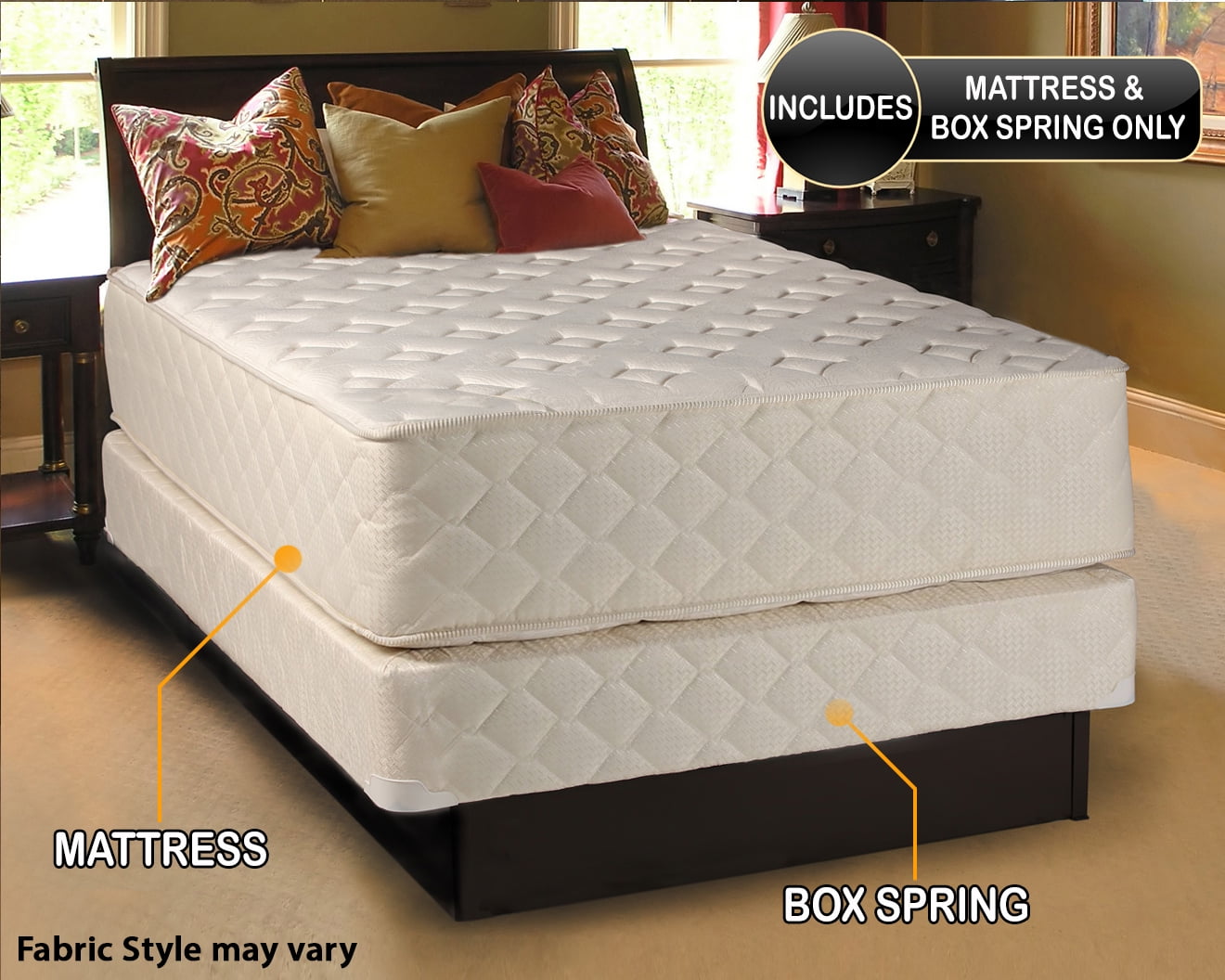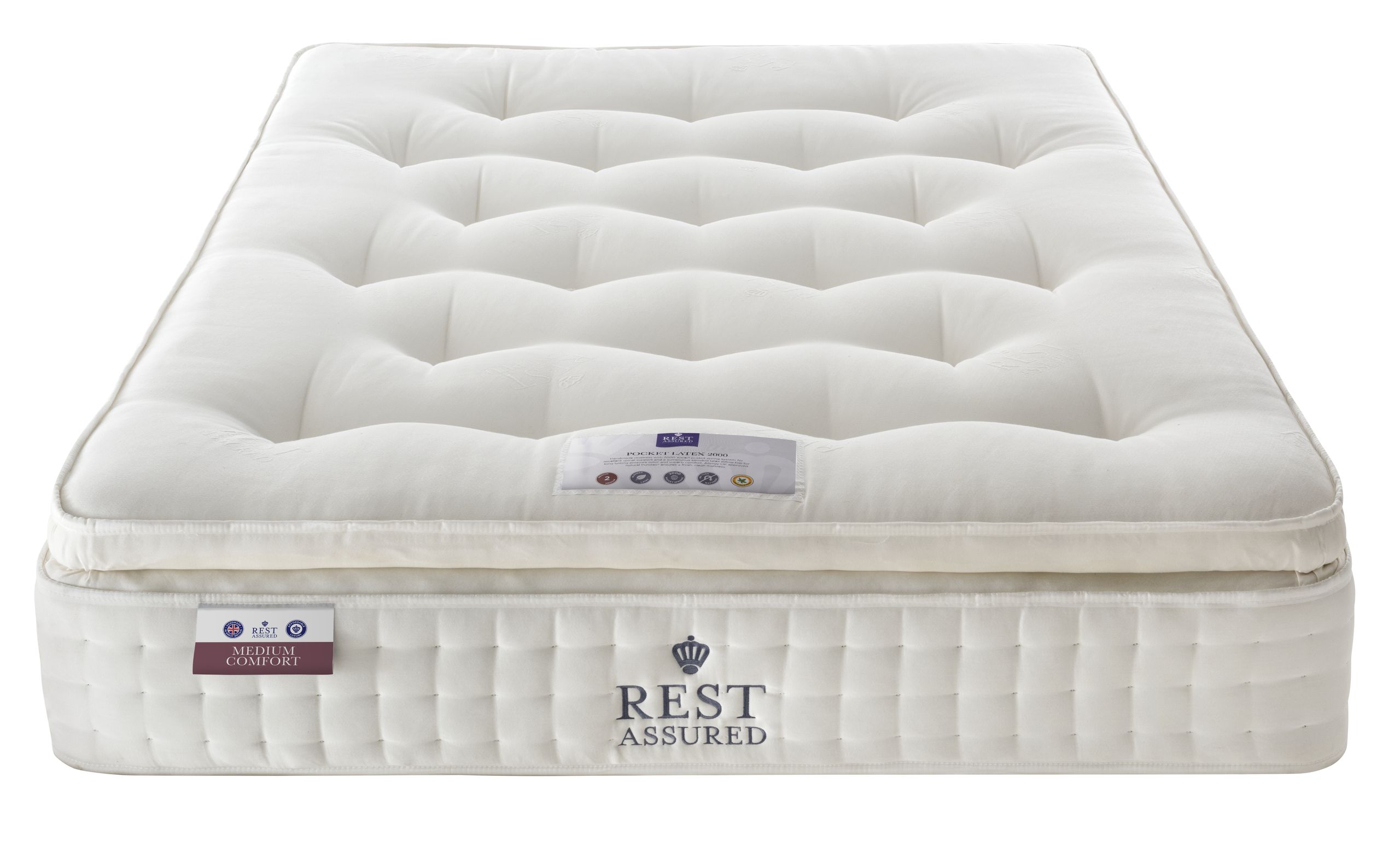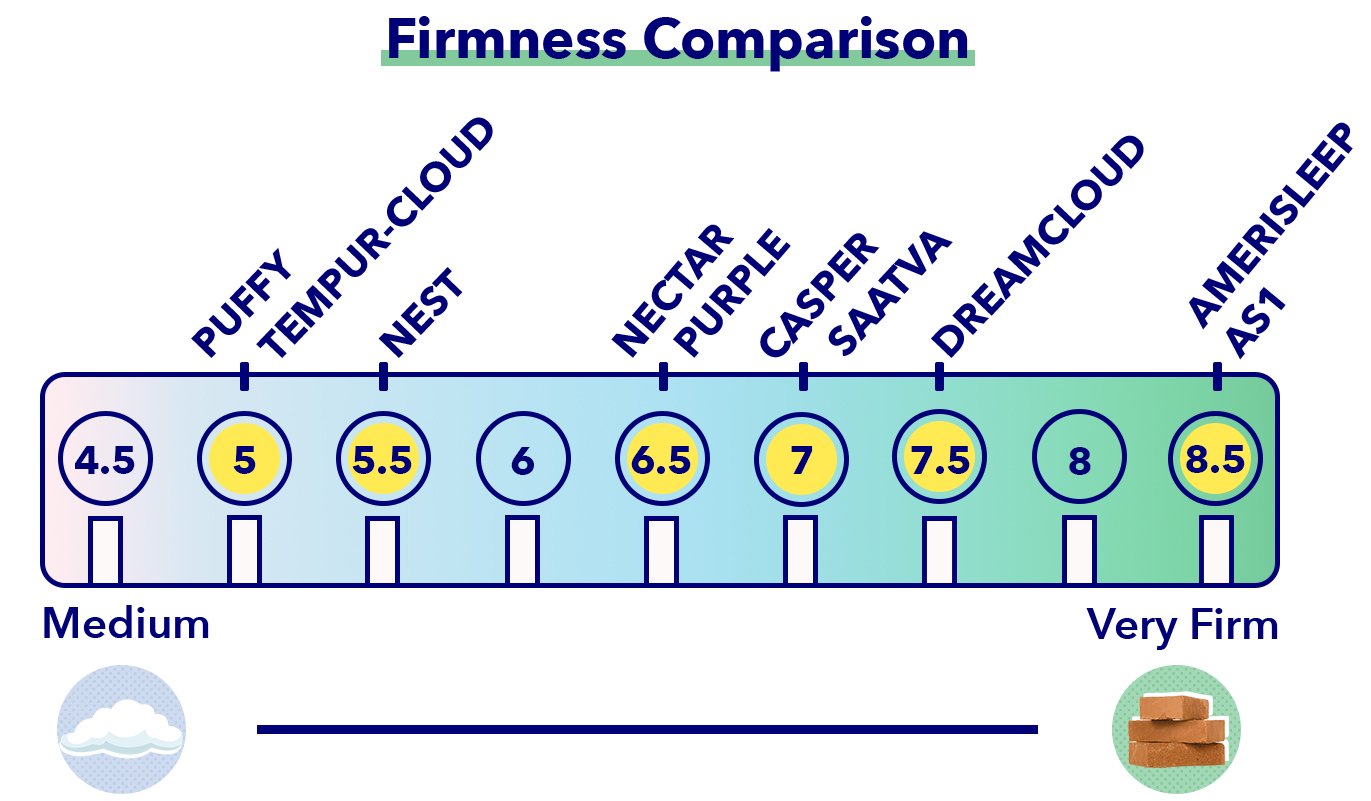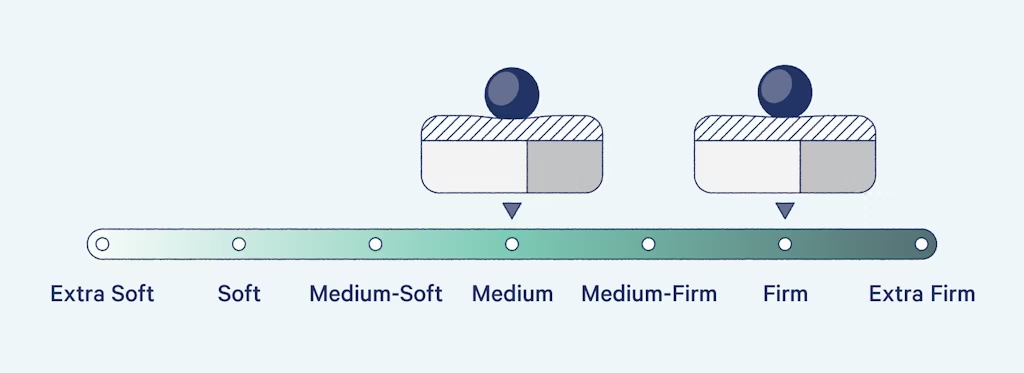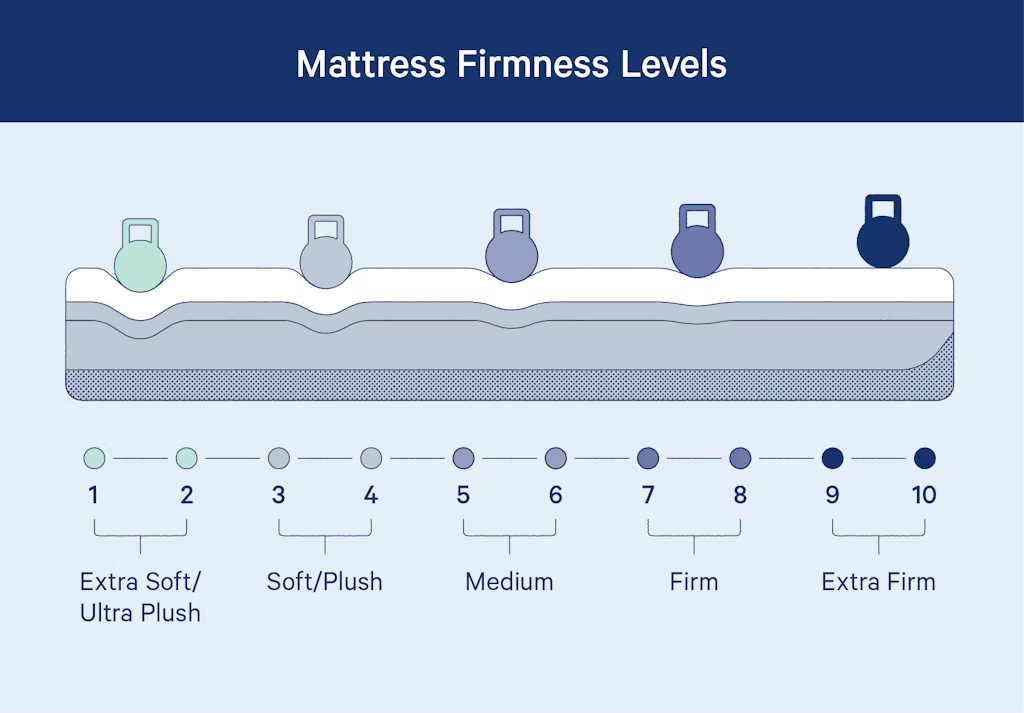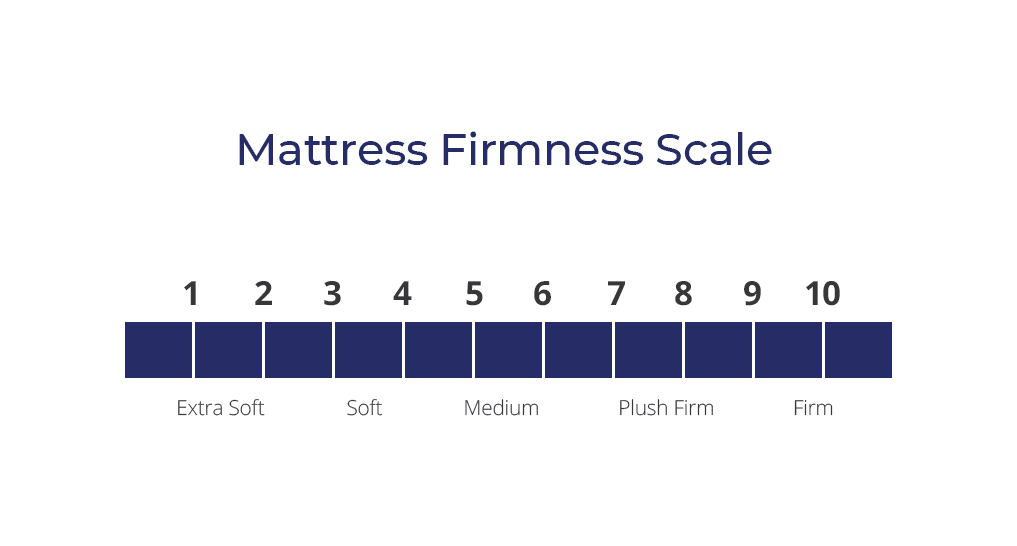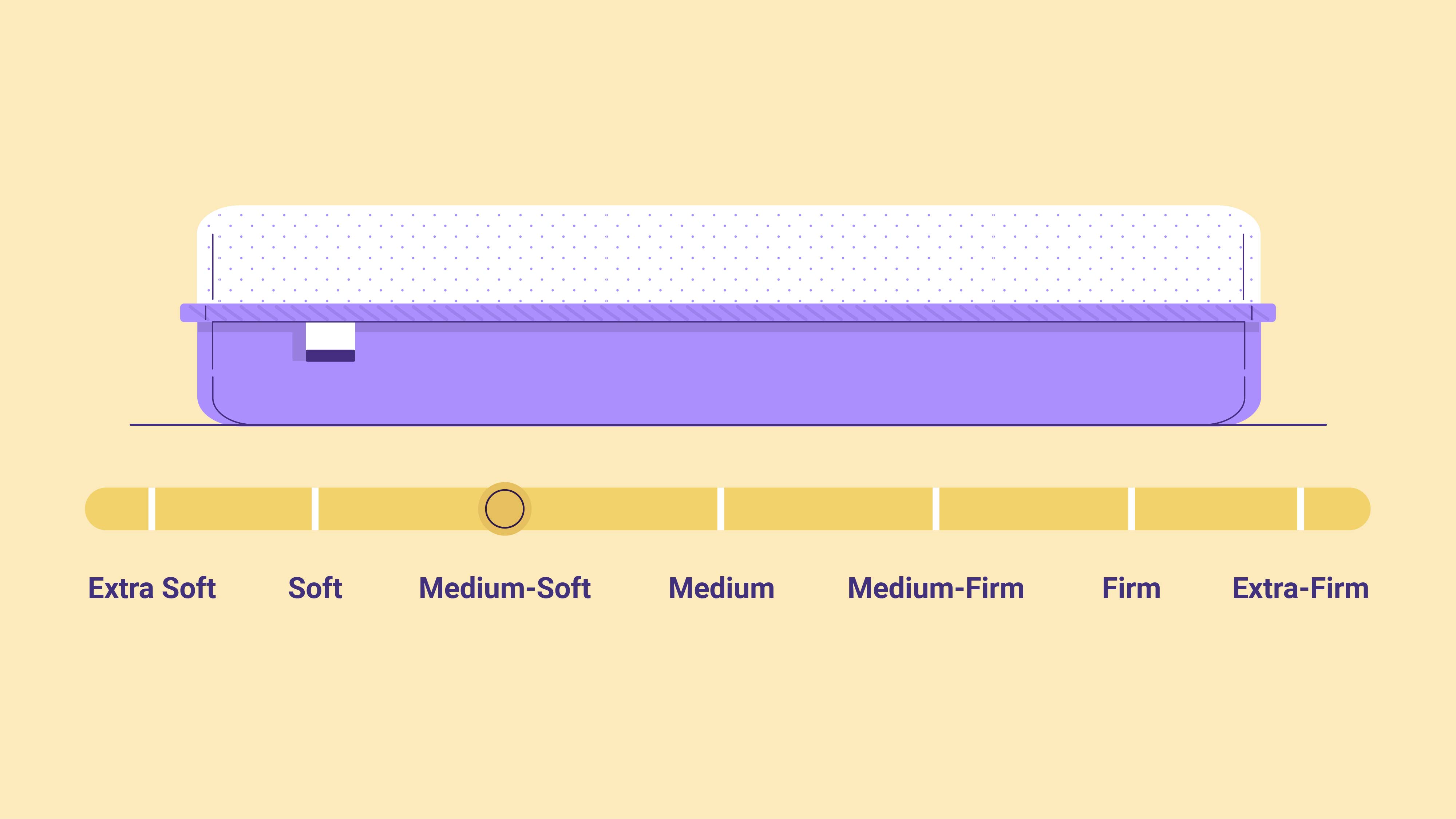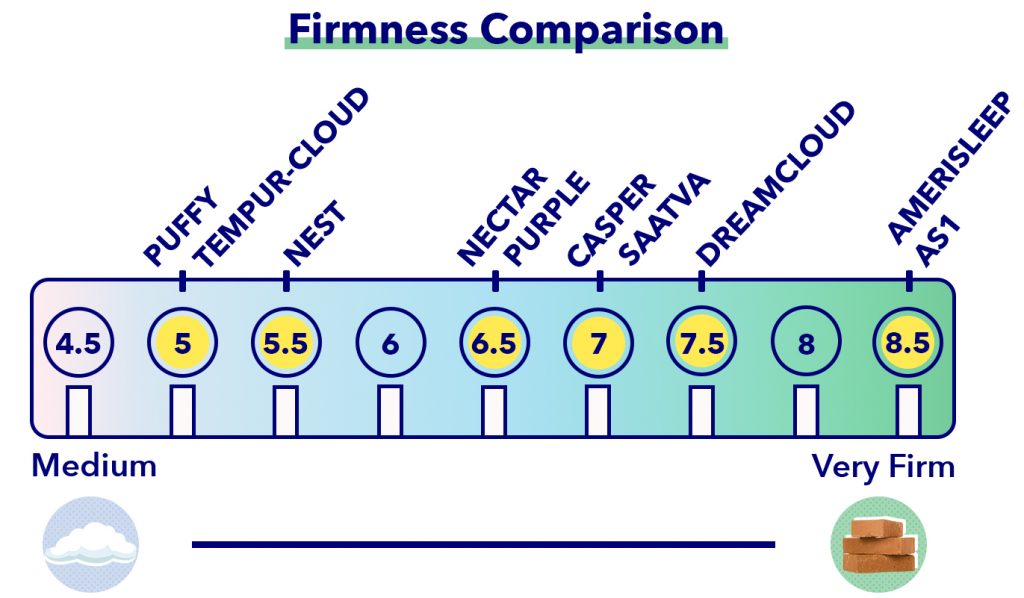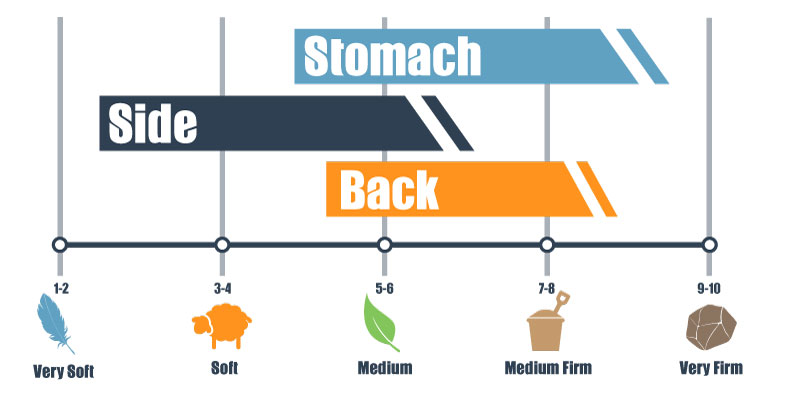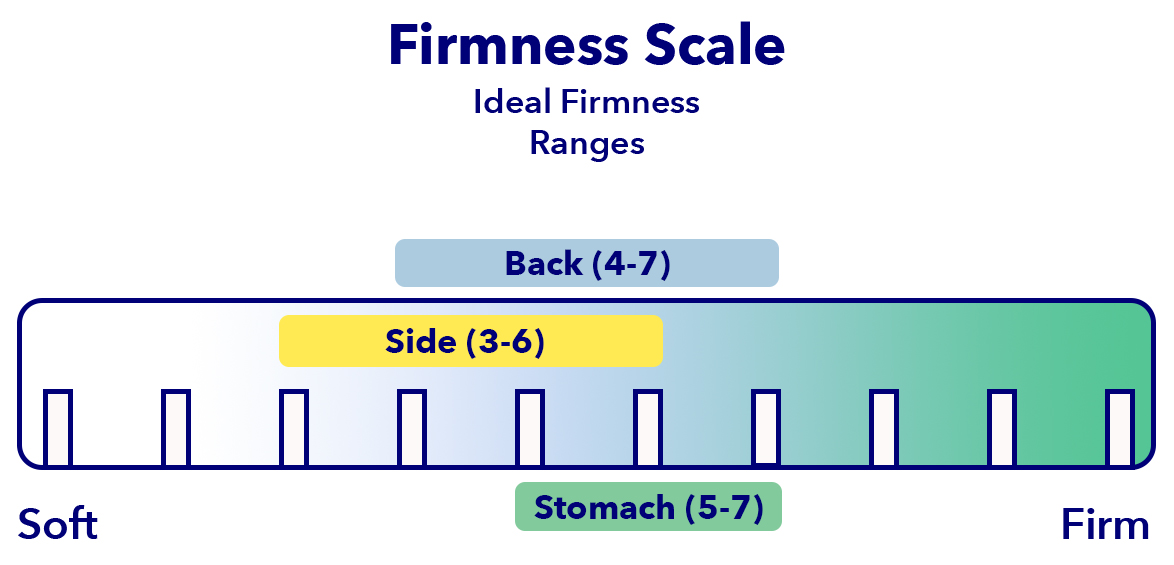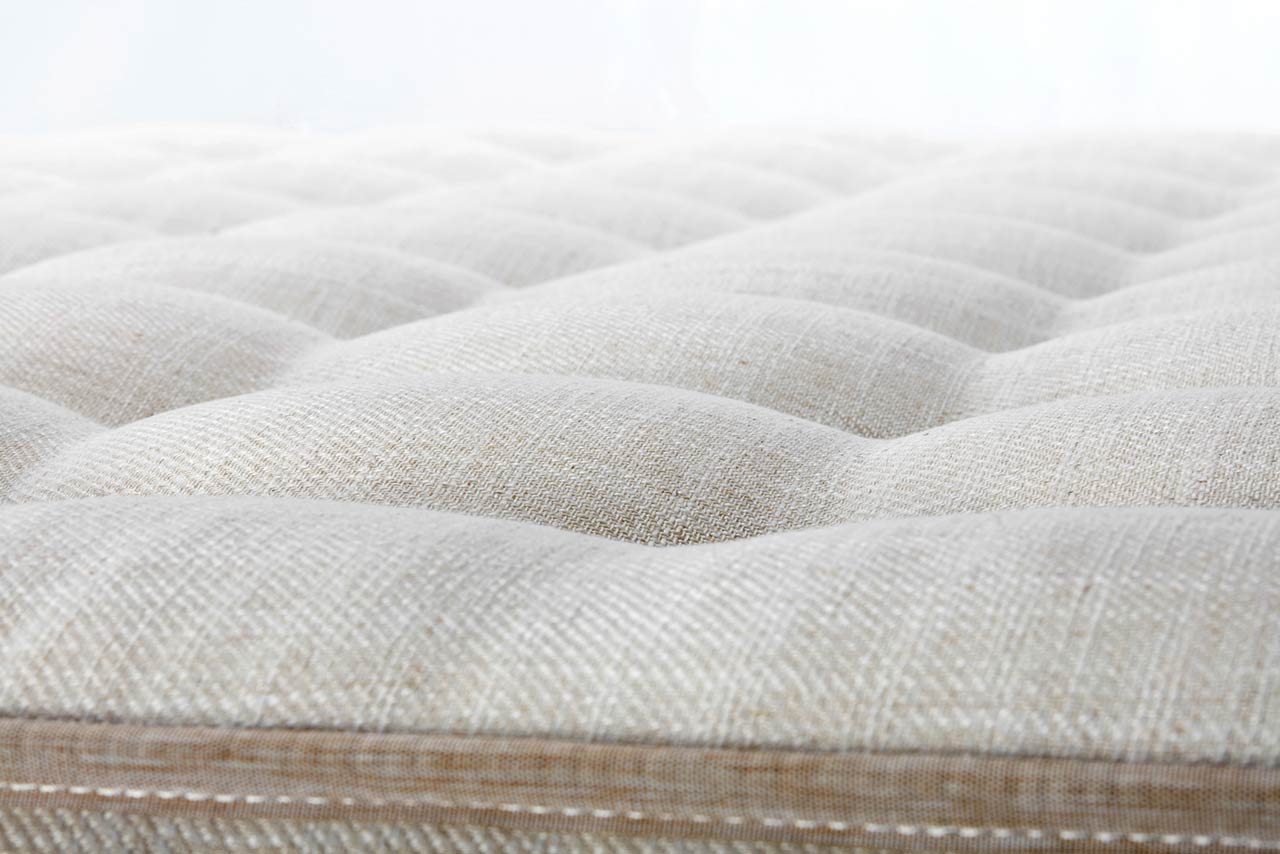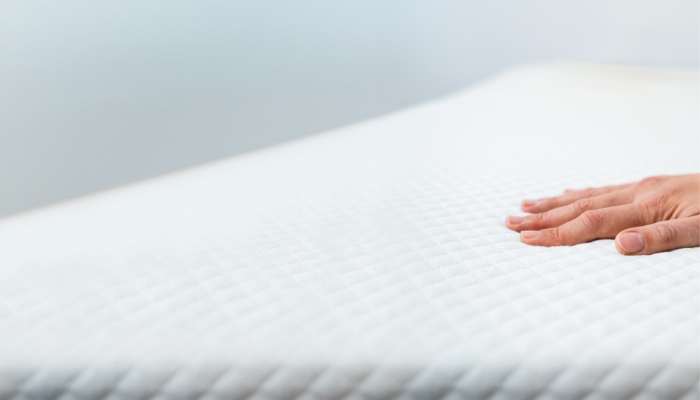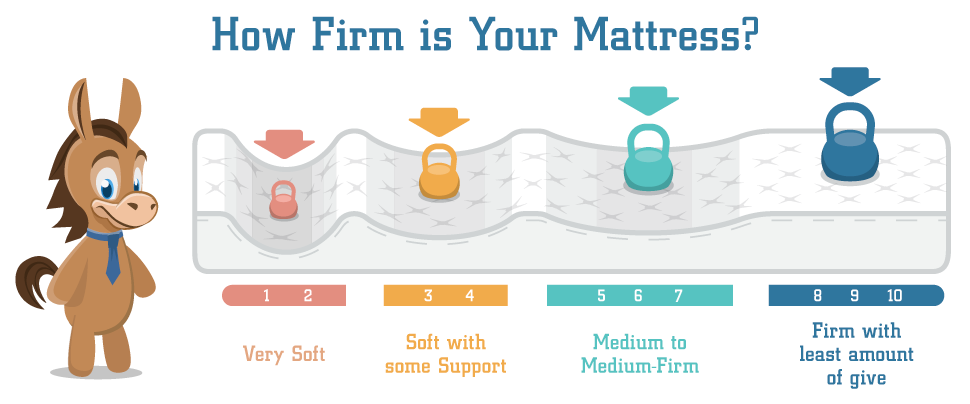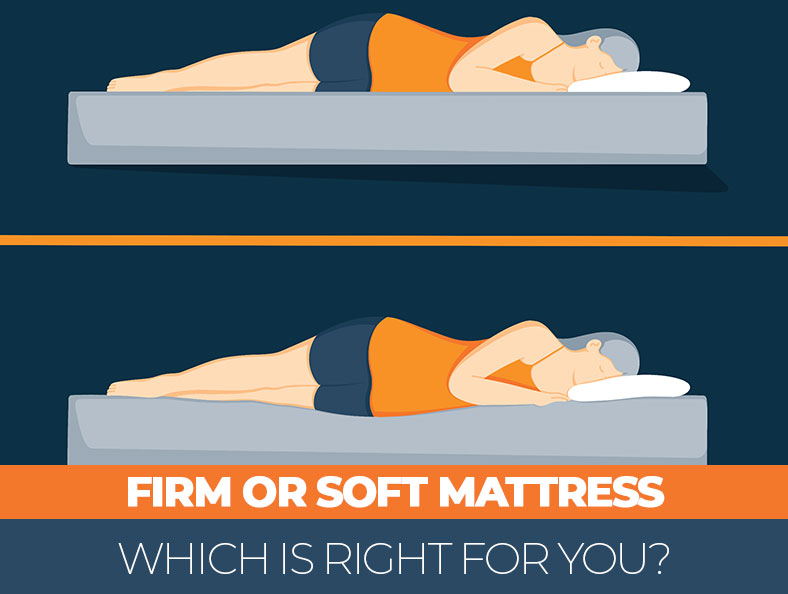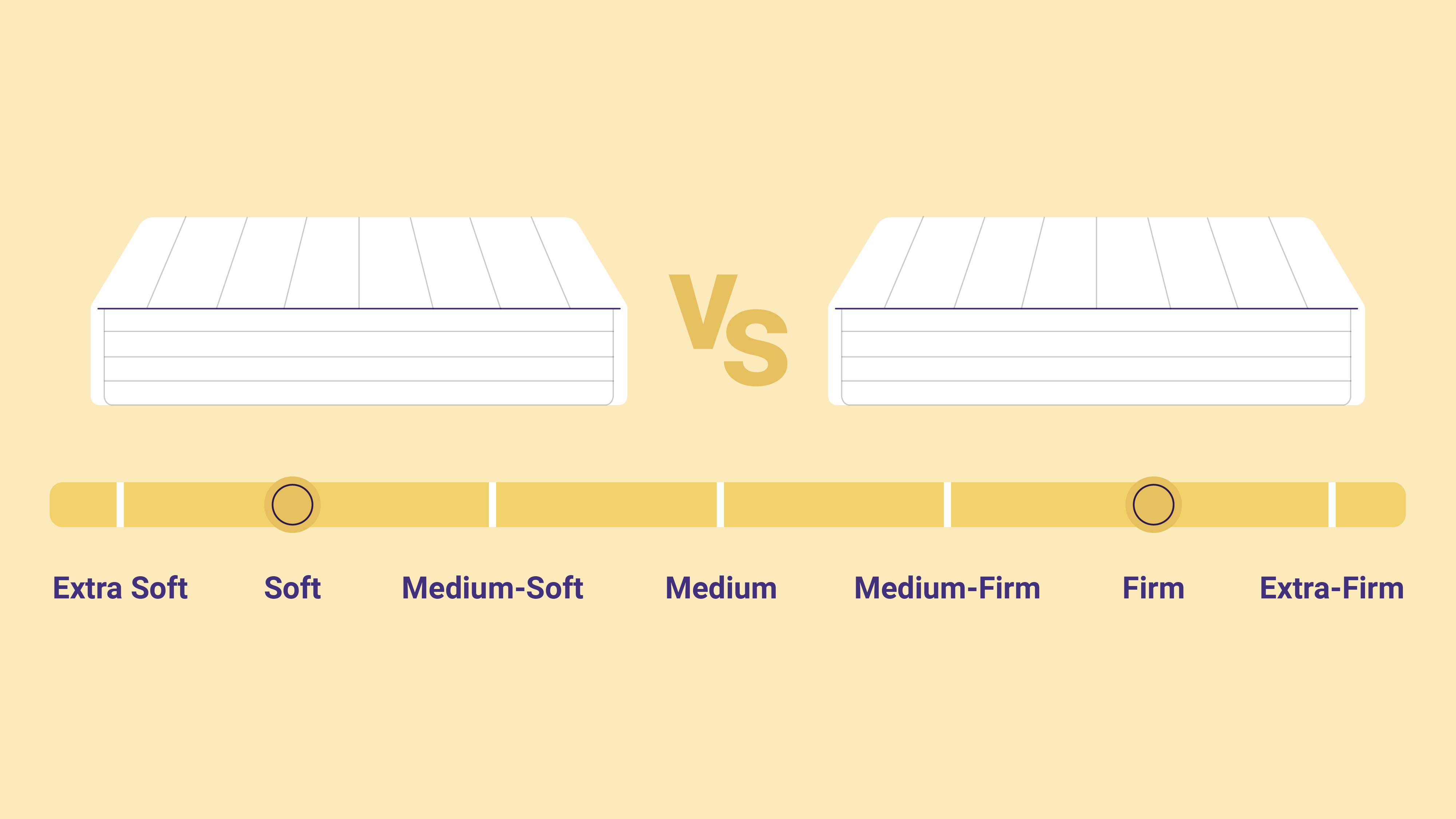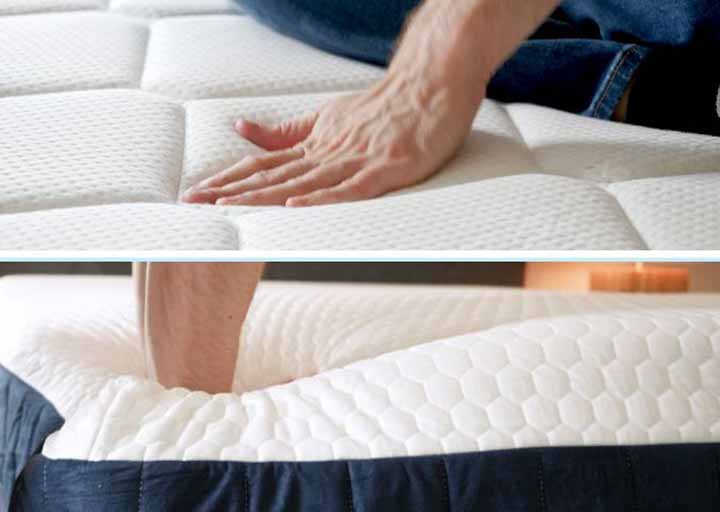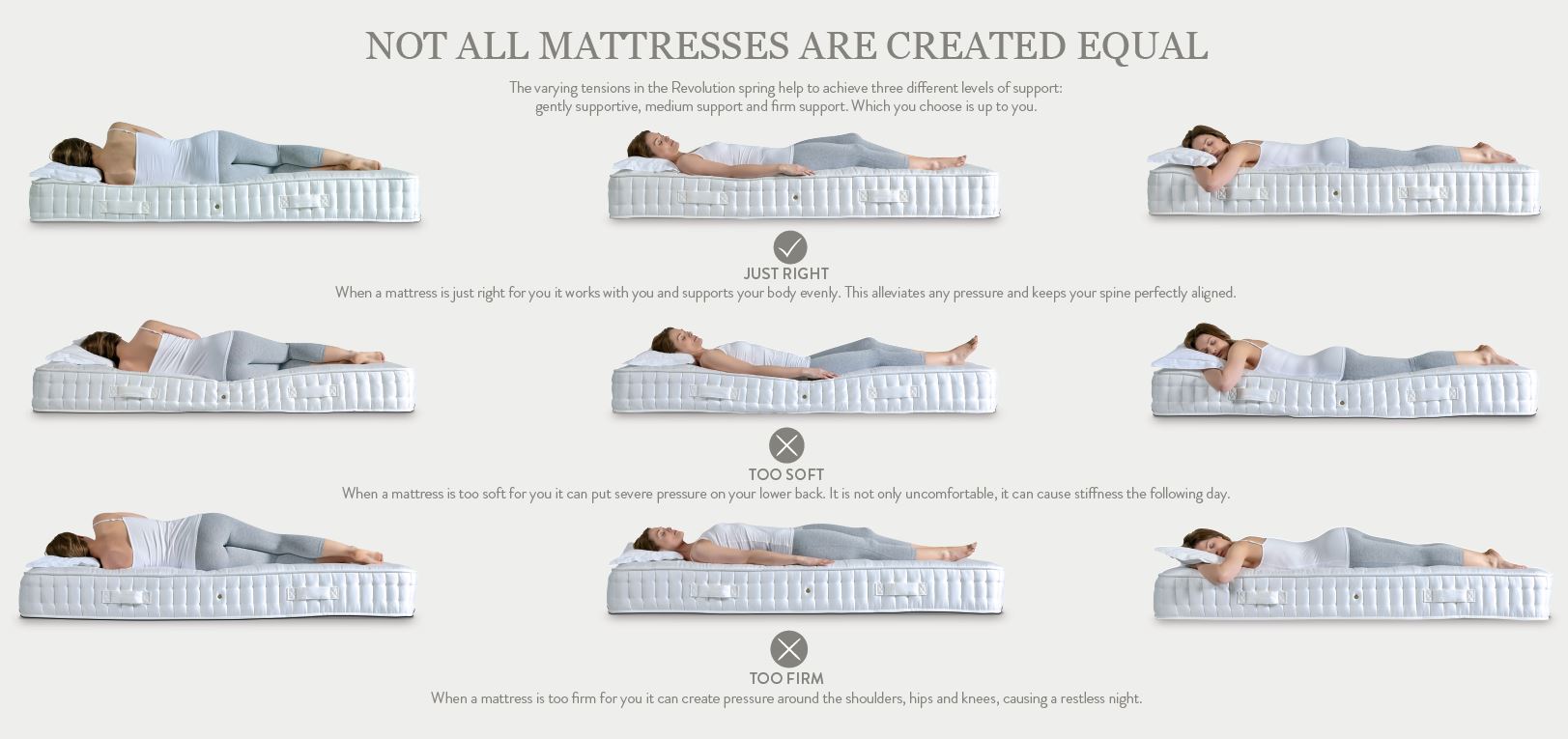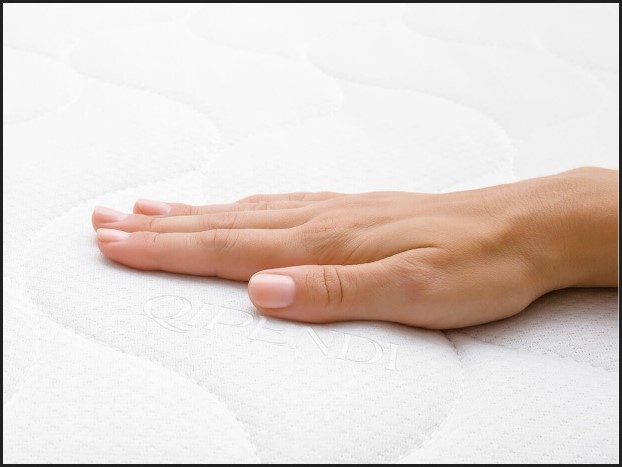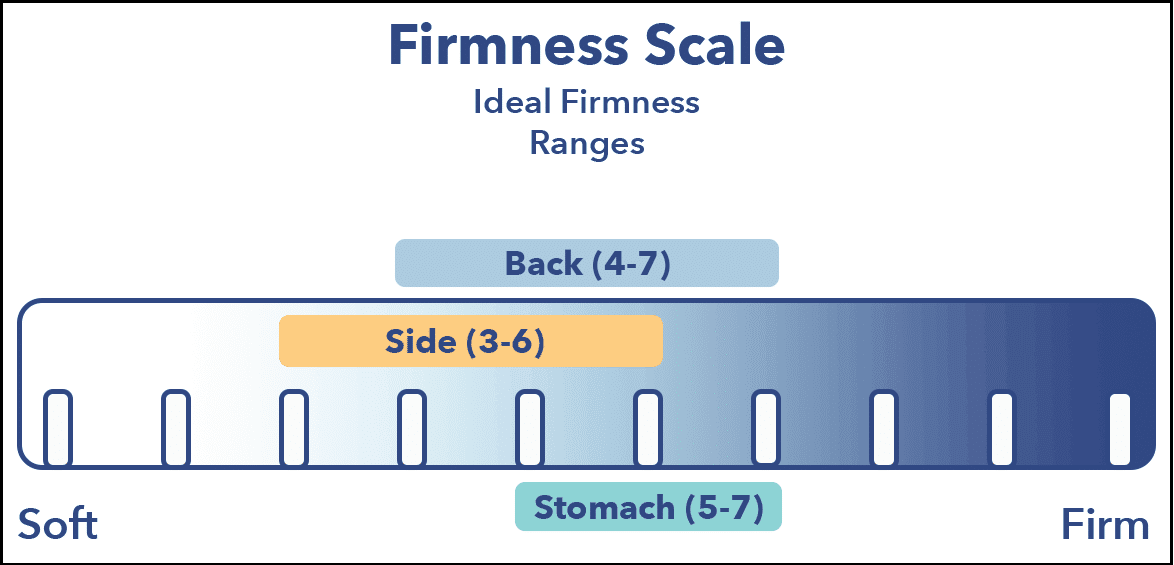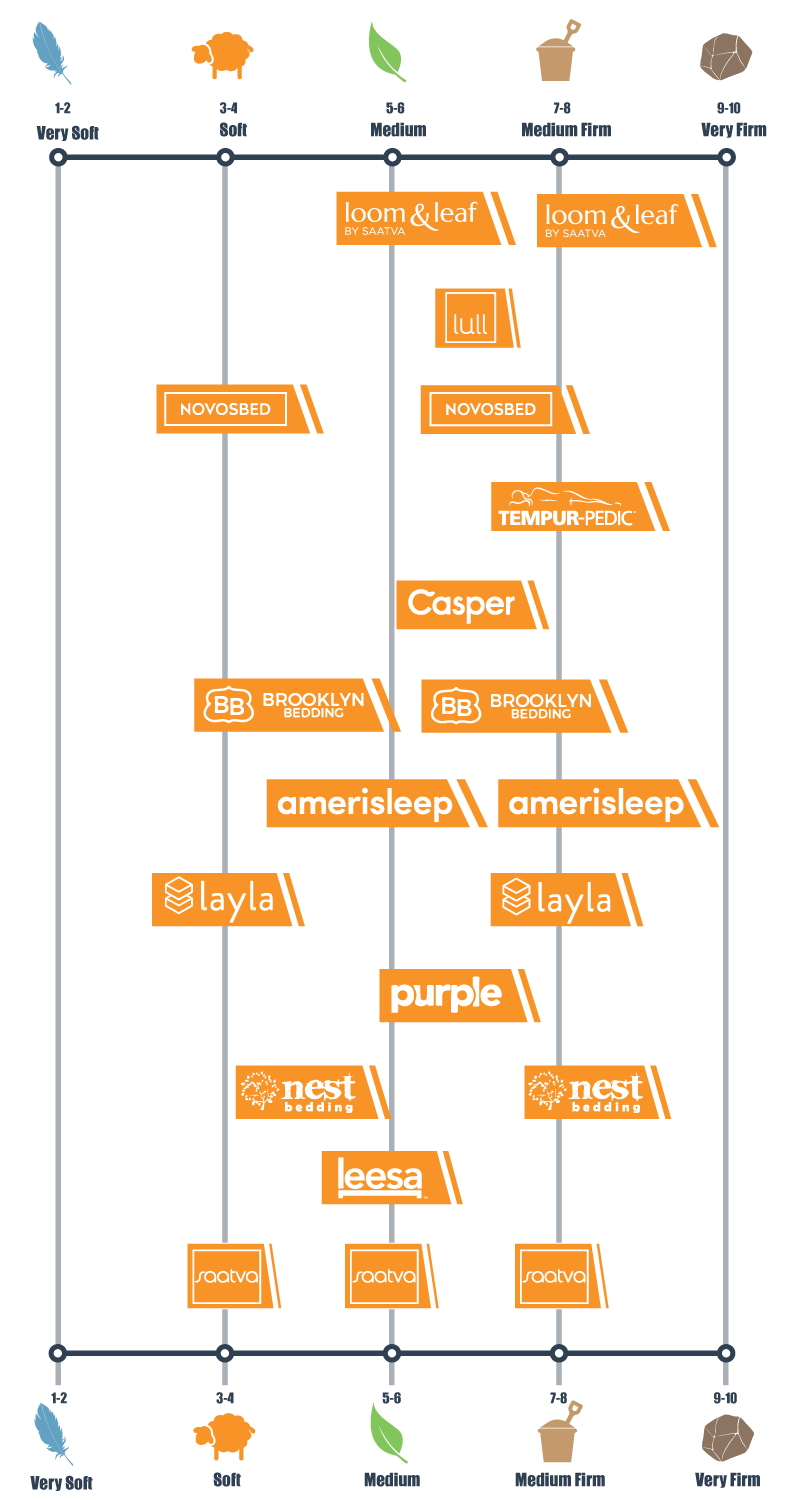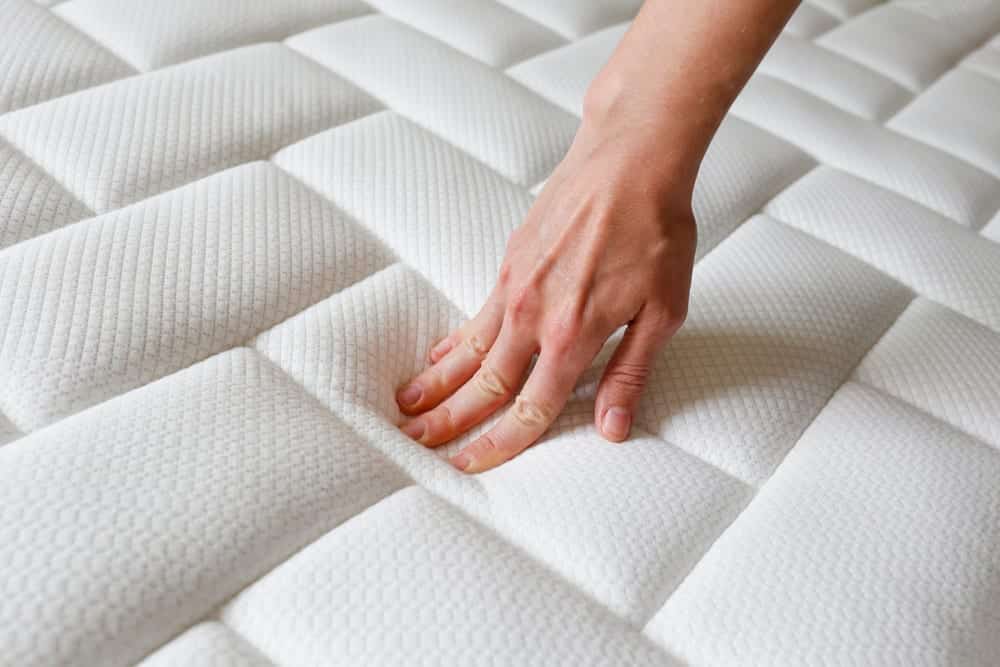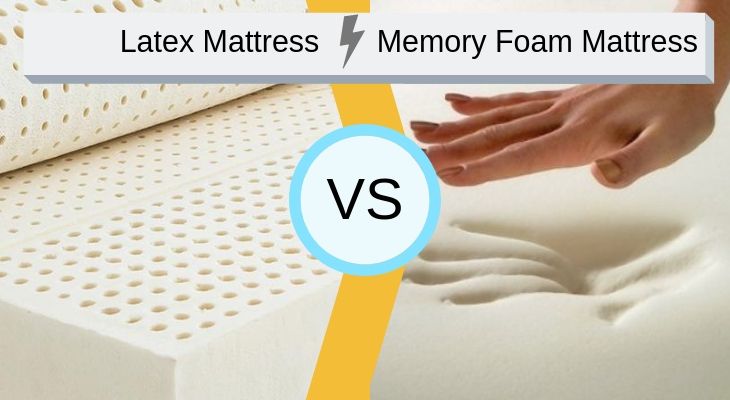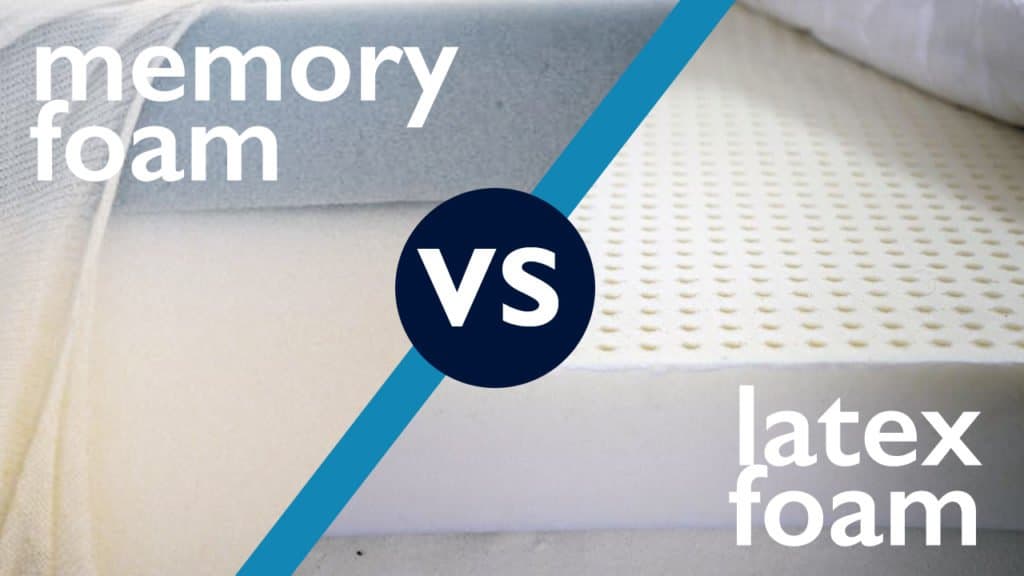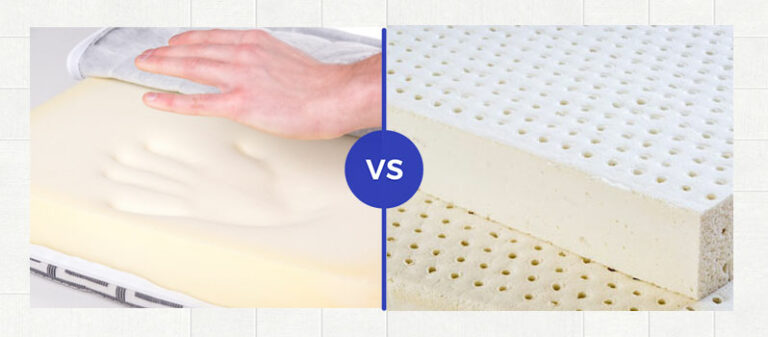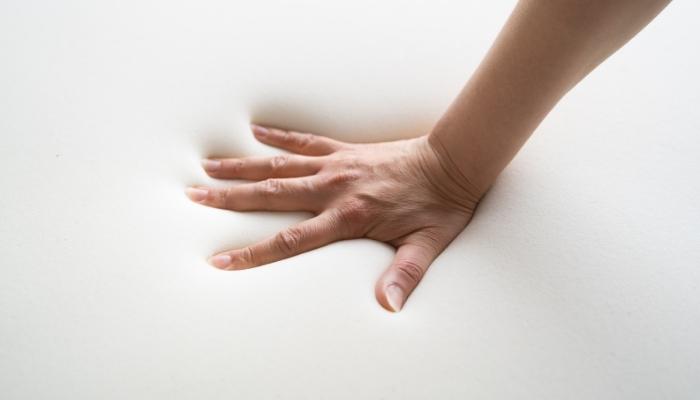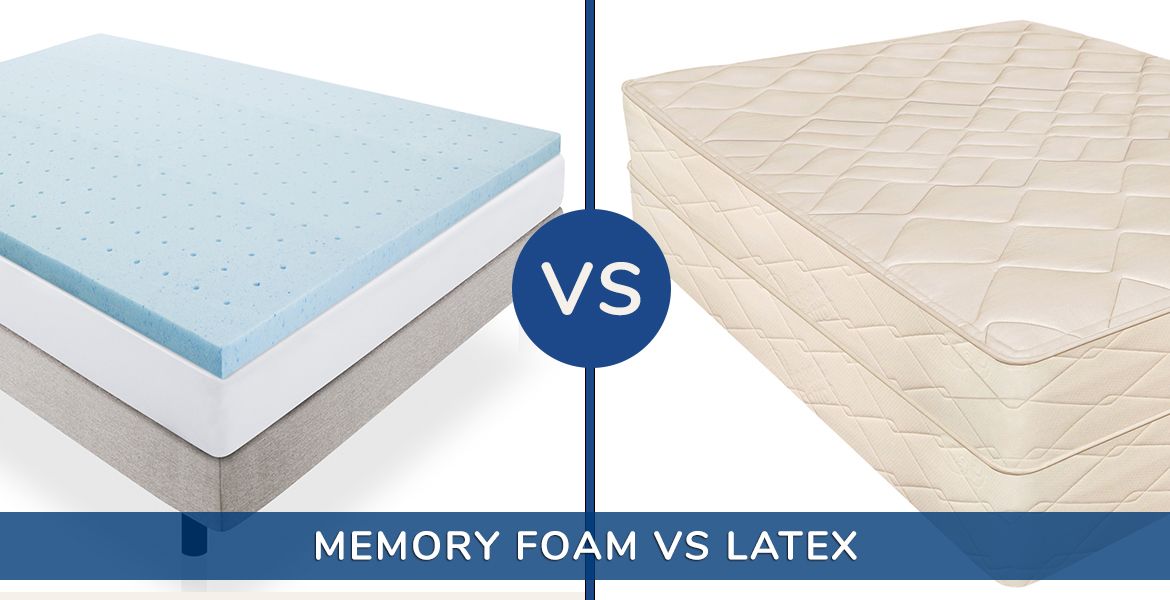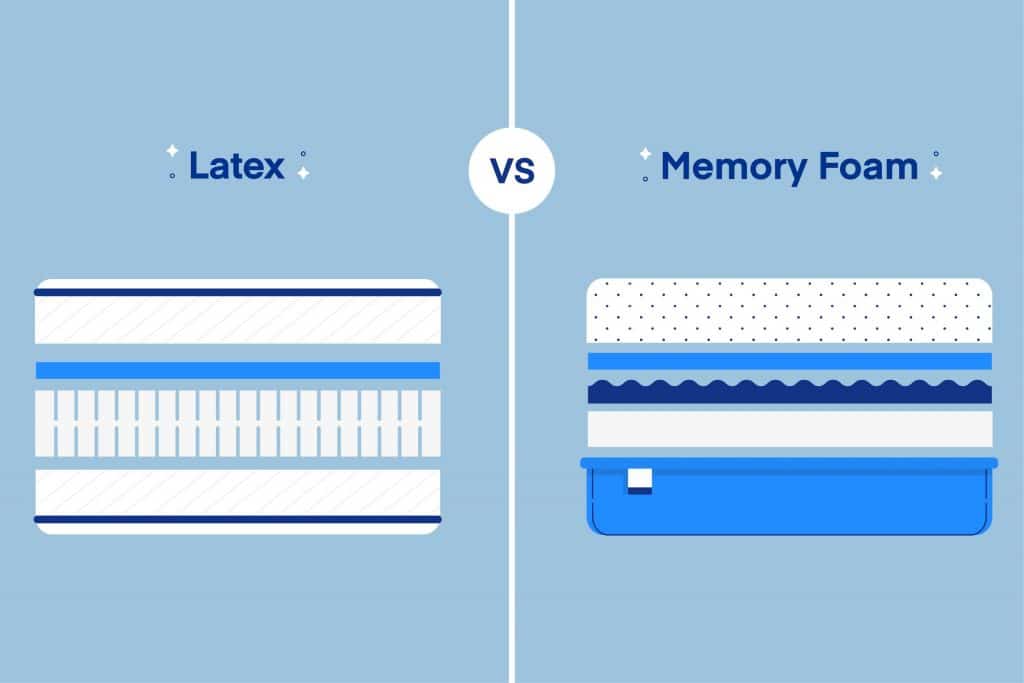When it comes to choosing a foam mattress, one of the most important factors to consider is the firmness level. The firmness of a mattress can greatly affect your comfort and sleep quality, so it's important to choose the right level for your body and preferences. In this article, we will compare the firmness levels of various foam mattresses to help you find the perfect one for your needs.Foam Mattress Firmness Comparison:
There is no one "best" firmness level for foam mattresses as it ultimately depends on personal preferences and needs. However, there are certain factors to consider when choosing the right firmness for your foam mattress. For example, those who have back pain may benefit from a firmer mattress for better support, while side sleepers may prefer a softer mattress for more pressure relief.Best Firmness for Foam Mattresses:
Foam mattresses typically come in a range of firmness levels, from soft to medium to firm. The firmness level is determined by the density and indentation load deflection (ILD) of the foam. The higher the density and ILD, the firmer the mattress will be. It's important to note that foam mattress firmness can also vary depending on the brand and model.Comparing Foam Mattress Firmness Levels:
Most foam mattresses are rated on a scale of 1-10, with 1 being the softest and 10 being the firmest. The majority of foam mattresses fall between 5-7 on the firmness scale, which is considered medium-firm. However, some mattresses may go up to 8-9 on the firmness scale, which is considered firm. It's important to test out different firmness levels to see which one feels most comfortable for you.Firmness Scale for Foam Mattresses:
When shopping for a foam mattress, it's helpful to have a firmness guide to reference. Here is a breakdown of the different firmness levels and who they may be best suited for: Soft (1-3 on the firmness scale): Best for side sleepers, lightweight individuals, and those who prefer a more plush and sinking feeling in their mattress. Medium (4-6 on the firmness scale): Best for combination sleepers, couples with different firmness preferences, and those who want a balance of comfort and support. Firm (7-10 on the firmness scale): Best for back and stomach sleepers, heavier individuals, and those who need more support for their spine.Foam Mattress Firmness Guide:
As mentioned, the right firmness for your foam mattress depends on your body type, sleeping position, and personal preferences. It's important to consider these factors when choosing a firmness level. For example, if you have a heavier body type, you may need a firmer mattress for proper support. Testing out different firmness levels in-store or taking advantage of a sleep trial can help you determine the best fit for your needs.Finding the Right Firmness for Your Foam Mattress:
The debate between a firm vs soft mattress is ongoing, and both sides have valid arguments. A firmer mattress can provide better support for your spine, while a softer mattress can offer more pressure relief. Ultimately, the right choice depends on your individual needs and preferences. For those who are unsure, a medium-firm mattress may be the best compromise.Firm vs Soft: Foam Mattress Firmness Comparison:
When it comes to choosing the perfect firmness for your foam mattress, it's important to consider your body type, sleeping position, and comfort preferences. It's also helpful to do your research and read reviews from others with similar needs. Keep in mind that firmness can also be subjective, so what feels firm to one person may feel soft to another.How to Choose the Perfect Firmness for Your Foam Mattress:
When shopping for a foam mattress, you may come across firmness ratings such as "plush," "medium," and "firm." While these terms can give you a general idea of the firmness level, they are not standardized and can vary between brands. It's important to also look at the firmness scale or description to get a better understanding of the mattress's firmness level.Understanding Foam Mattress Firmness Ratings:
Memory foam and latex are two popular types of foam used in mattresses, and they have different firmness characteristics. Memory foam tends to have a slower response time and a deeper hug, while latex has a quicker response time and a more bouncy feel. When comparing firmness levels, memory foam may feel softer than latex at the same rating due to its slower response and deeper sinkage.Comparing Firmness in Memory Foam vs Latex Mattresses:
Benefits of Choosing a Foam Mattress with the Right Firmness
Proper Spinal Alignment
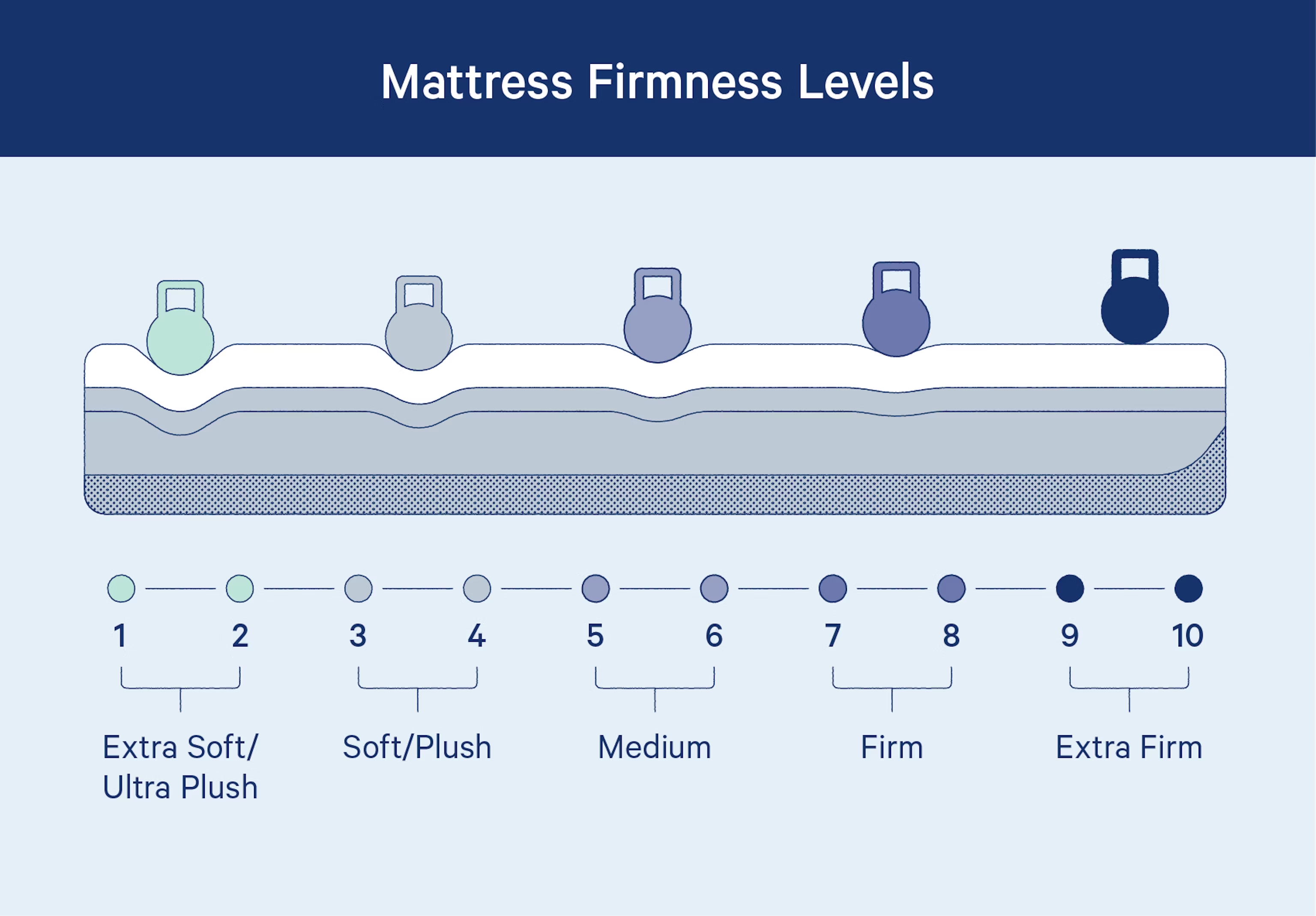 One of the main benefits of choosing a foam mattress with the right firmness is that it helps promote proper spinal alignment. The
firmness
of a mattress plays a crucial role in supporting the natural curvature of your spine while you sleep. A mattress that is too soft can cause your body to sink, leading to an unnatural alignment that can result in back pain and discomfort. On the other hand, a
firm
mattress provides the necessary support to keep your spine in a neutral position, ensuring a comfortable and pain-free sleep.
One of the main benefits of choosing a foam mattress with the right firmness is that it helps promote proper spinal alignment. The
firmness
of a mattress plays a crucial role in supporting the natural curvature of your spine while you sleep. A mattress that is too soft can cause your body to sink, leading to an unnatural alignment that can result in back pain and discomfort. On the other hand, a
firm
mattress provides the necessary support to keep your spine in a neutral position, ensuring a comfortable and pain-free sleep.
Relief from Pressure Points
 Another advantage of selecting a foam mattress with the right
firmness
is that it can provide relief from pressure points. These are areas of your body such as your hips, shoulders, and elbows that may experience increased pressure when sleeping on a mattress that is too firm. This pressure can lead to discomfort and even pain, disrupting your sleep. With a foam mattress that offers the right level of
firmness
, your body weight is distributed evenly, reducing the pressure on these points and allowing you to sleep more comfortably.
Another advantage of selecting a foam mattress with the right
firmness
is that it can provide relief from pressure points. These are areas of your body such as your hips, shoulders, and elbows that may experience increased pressure when sleeping on a mattress that is too firm. This pressure can lead to discomfort and even pain, disrupting your sleep. With a foam mattress that offers the right level of
firmness
, your body weight is distributed evenly, reducing the pressure on these points and allowing you to sleep more comfortably.
Catered to Your Preferences
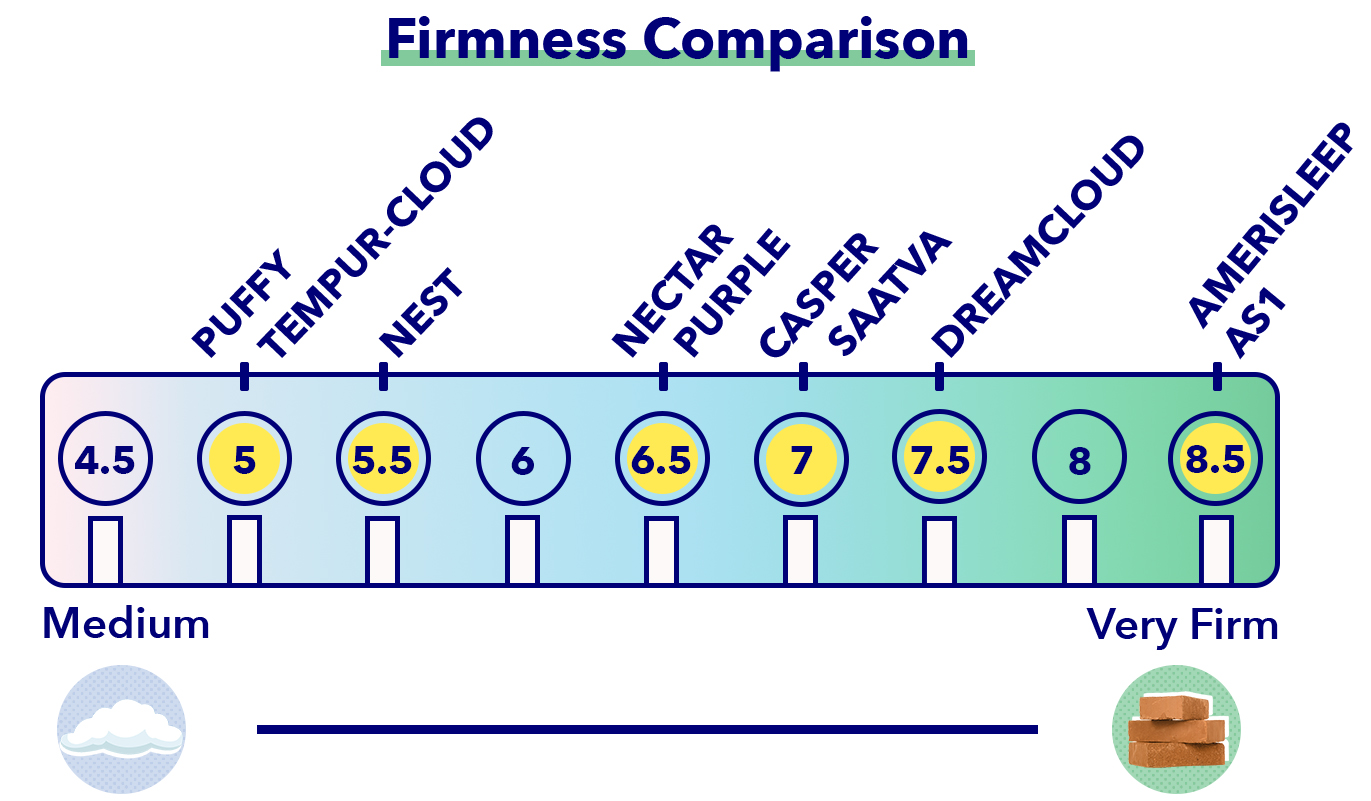 One of the best things about foam mattresses is that they come in a variety of
firmness
levels, catering to individual preferences. Some people may prefer a softer mattress, while others may require a firmer one for better support. With foam mattresses, you have the freedom to choose the
firmness
that best suits your needs and sleeping style. This ensures that you can achieve the perfect balance of comfort and support for a restful night's sleep.
One of the best things about foam mattresses is that they come in a variety of
firmness
levels, catering to individual preferences. Some people may prefer a softer mattress, while others may require a firmer one for better support. With foam mattresses, you have the freedom to choose the
firmness
that best suits your needs and sleeping style. This ensures that you can achieve the perfect balance of comfort and support for a restful night's sleep.
Long-Lasting Durability
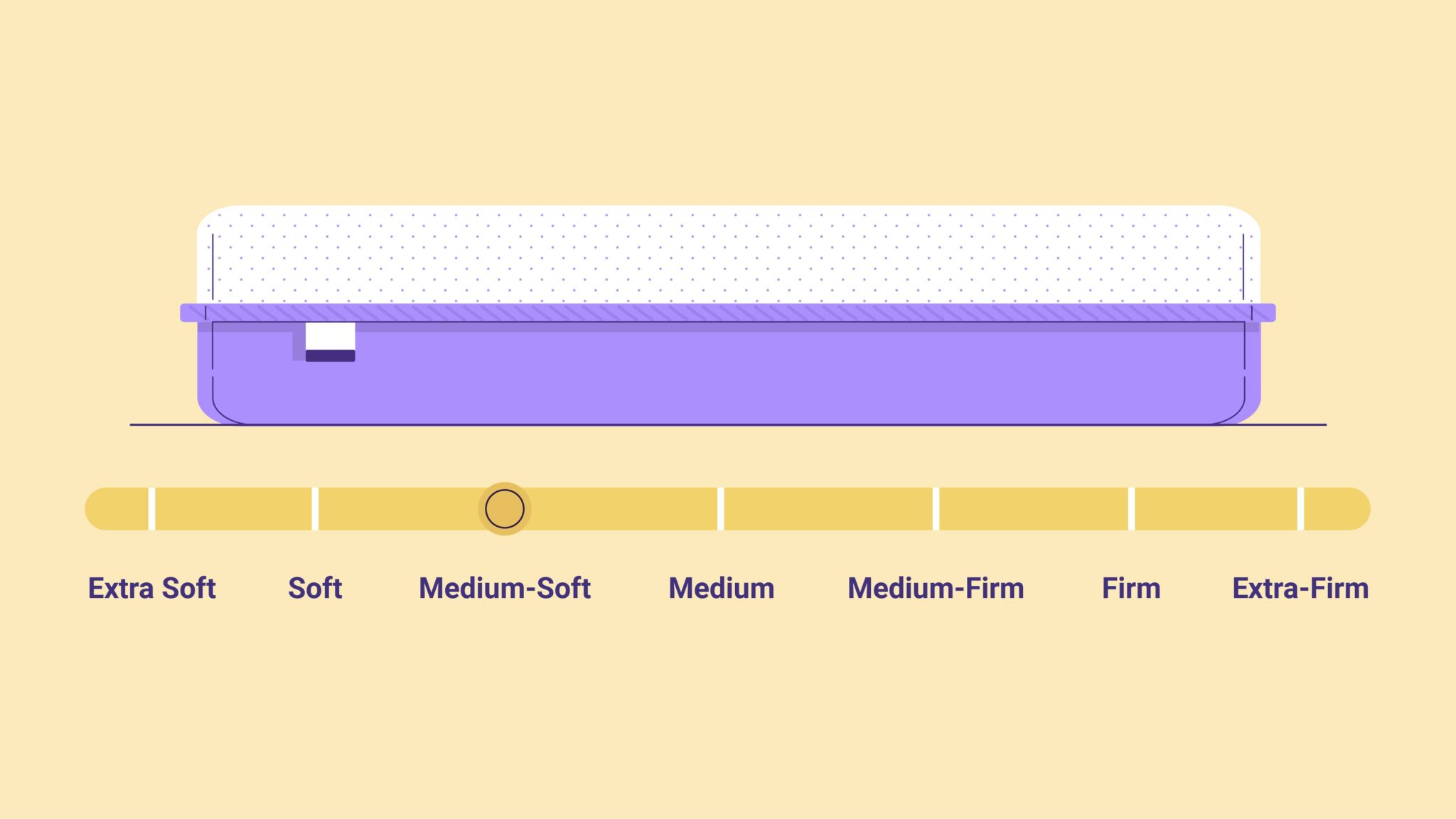 Another significant advantage of choosing a foam mattress with the right
firmness
is its long-lasting durability. Foam mattresses are known for their resilience and ability to maintain their shape and support for years. By selecting a
firm
foam mattress, you can ensure that it will retain its
firmness
for a longer time, providing you with a comfortable sleep surface for years to come.
In conclusion, the
firmness
of a foam mattress is a crucial factor to consider when looking for the perfect mattress. It not only affects your comfort and support but also plays a significant role in promoting proper spinal alignment and relieving pressure points. With a variety of
firmness
options to choose from, foam mattresses offer a customizable sleep experience catered to your preferences. And with their long-lasting durability, choosing the right
firmness
can ensure you have a comfortable and supportive sleep surface for years.
Another significant advantage of choosing a foam mattress with the right
firmness
is its long-lasting durability. Foam mattresses are known for their resilience and ability to maintain their shape and support for years. By selecting a
firm
foam mattress, you can ensure that it will retain its
firmness
for a longer time, providing you with a comfortable sleep surface for years to come.
In conclusion, the
firmness
of a foam mattress is a crucial factor to consider when looking for the perfect mattress. It not only affects your comfort and support but also plays a significant role in promoting proper spinal alignment and relieving pressure points. With a variety of
firmness
options to choose from, foam mattresses offer a customizable sleep experience catered to your preferences. And with their long-lasting durability, choosing the right
firmness
can ensure you have a comfortable and supportive sleep surface for years.
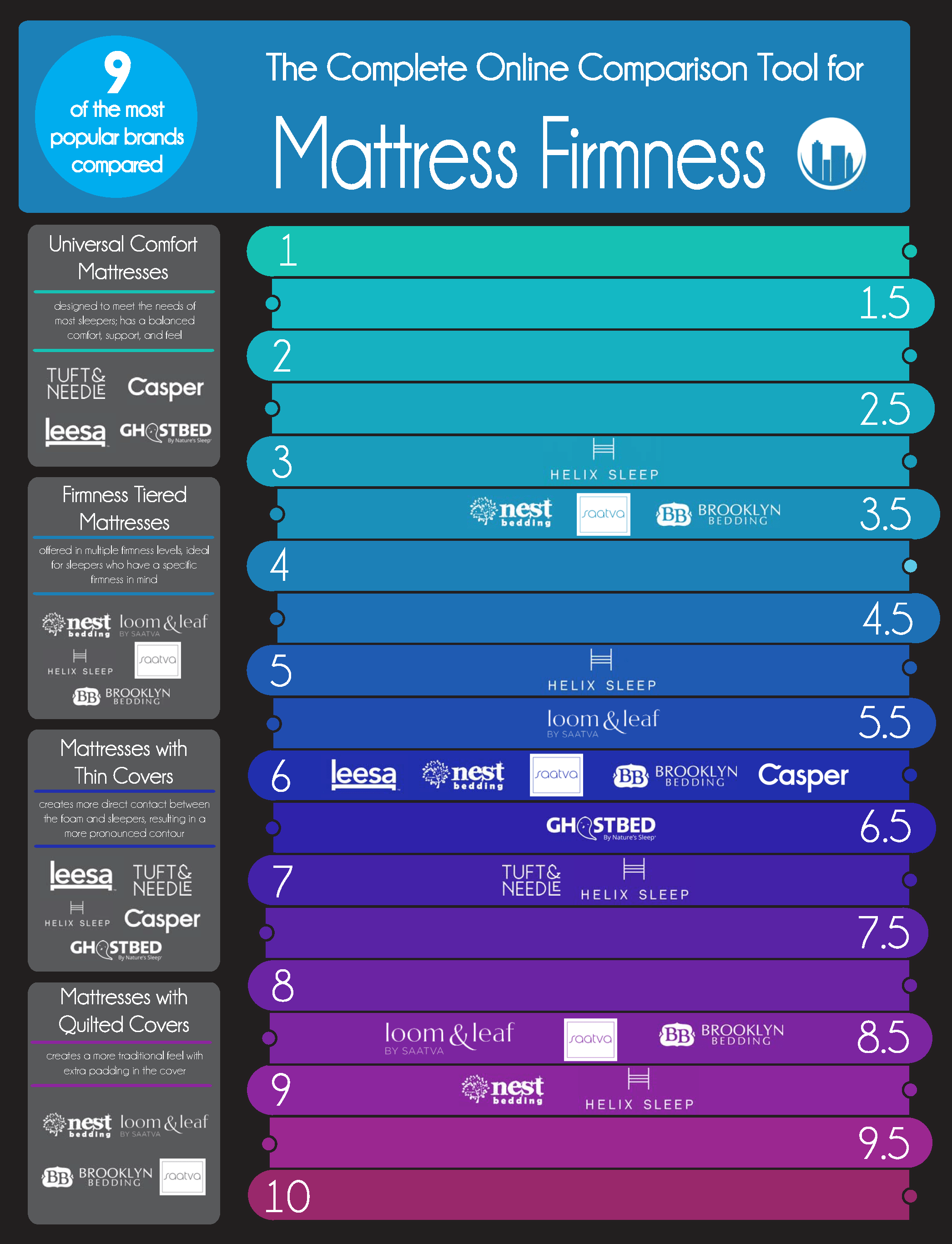



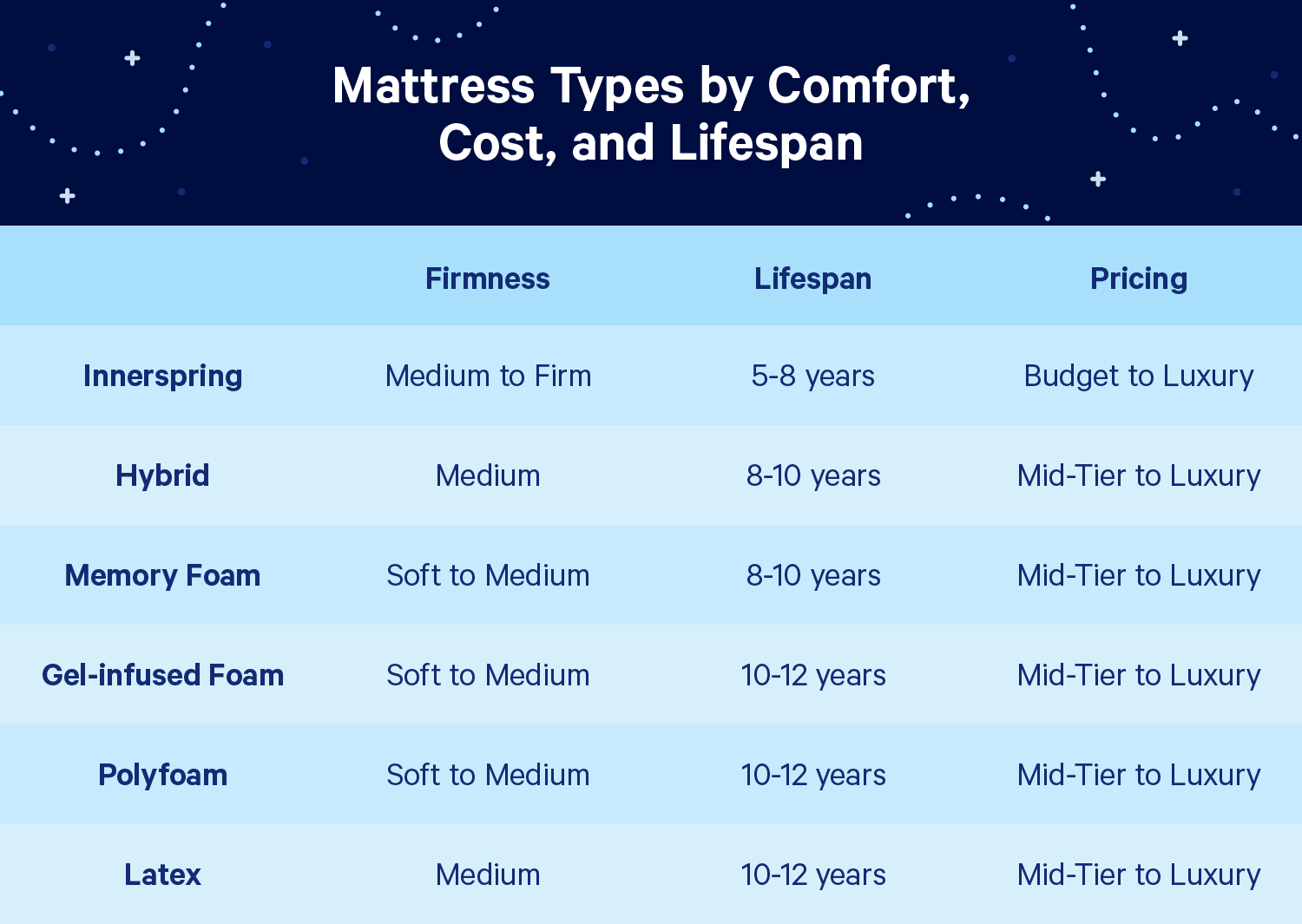


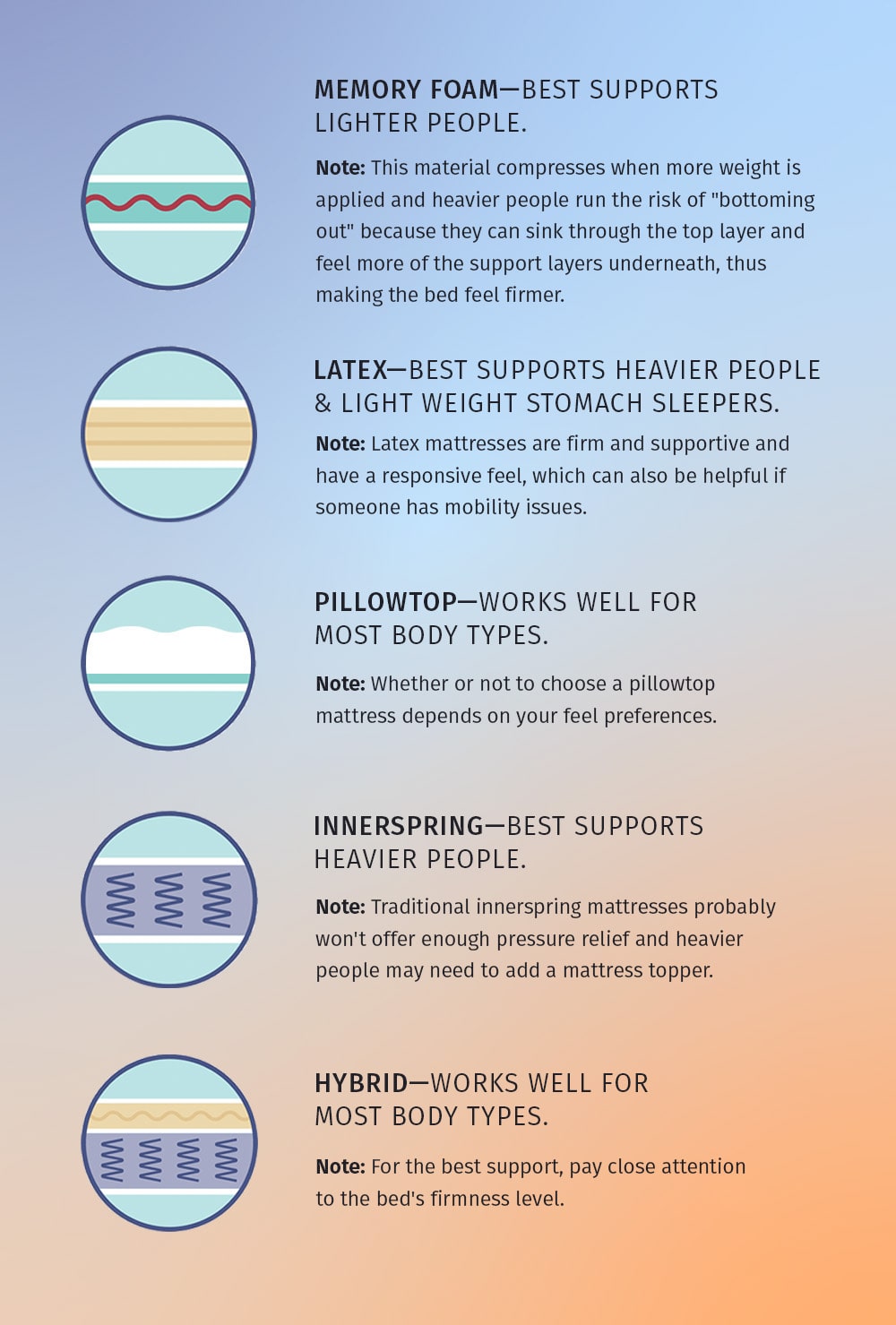

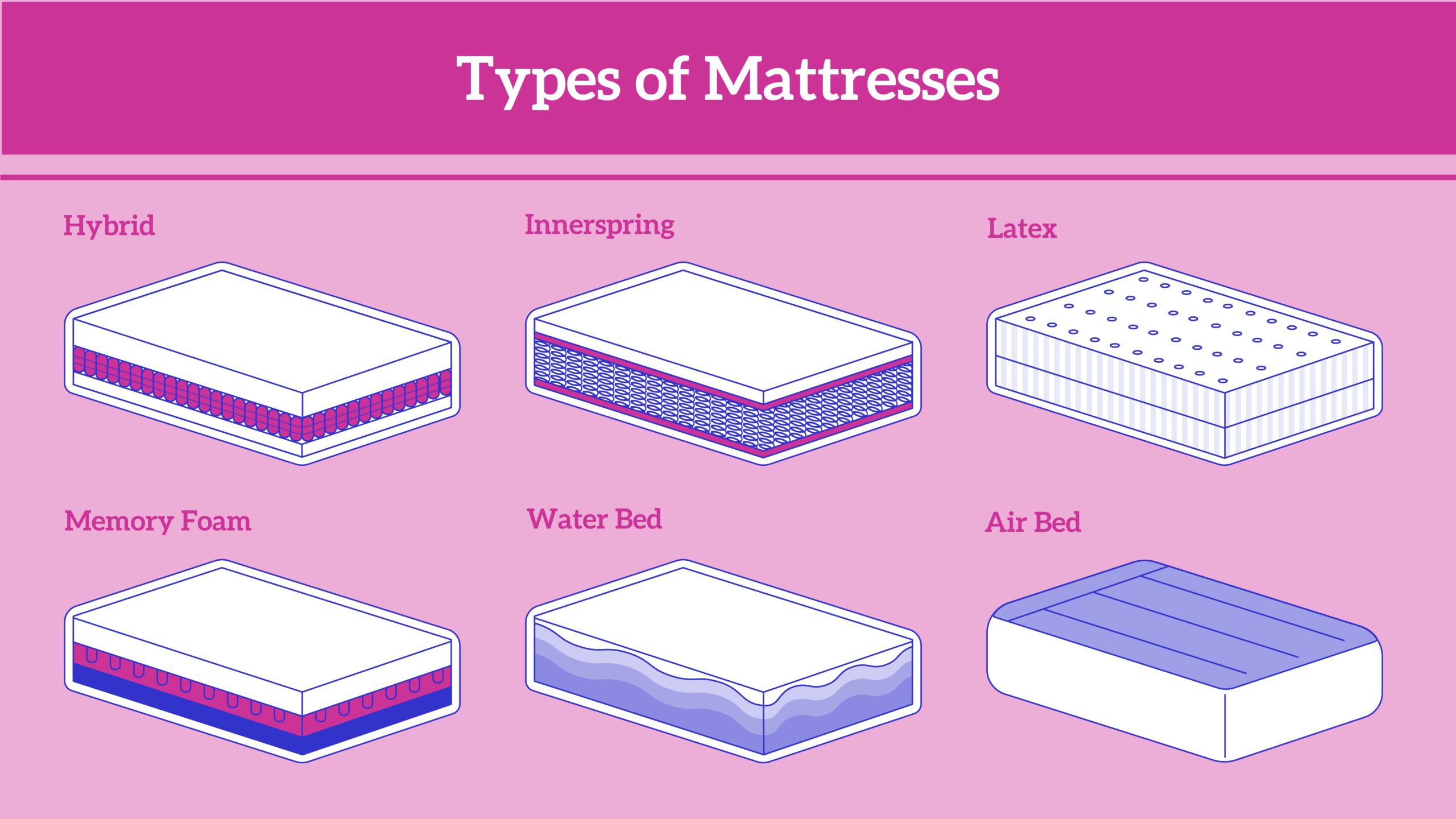
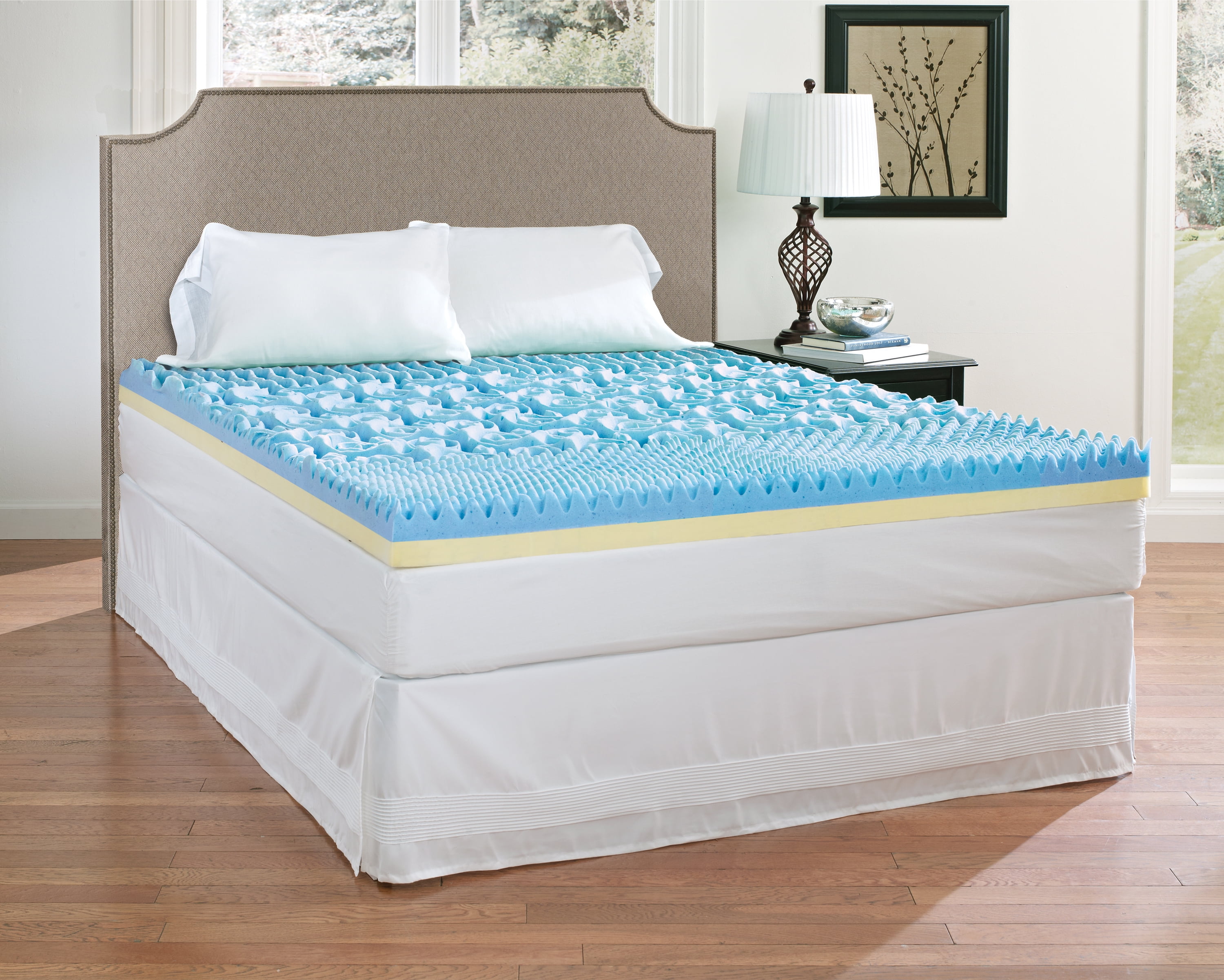
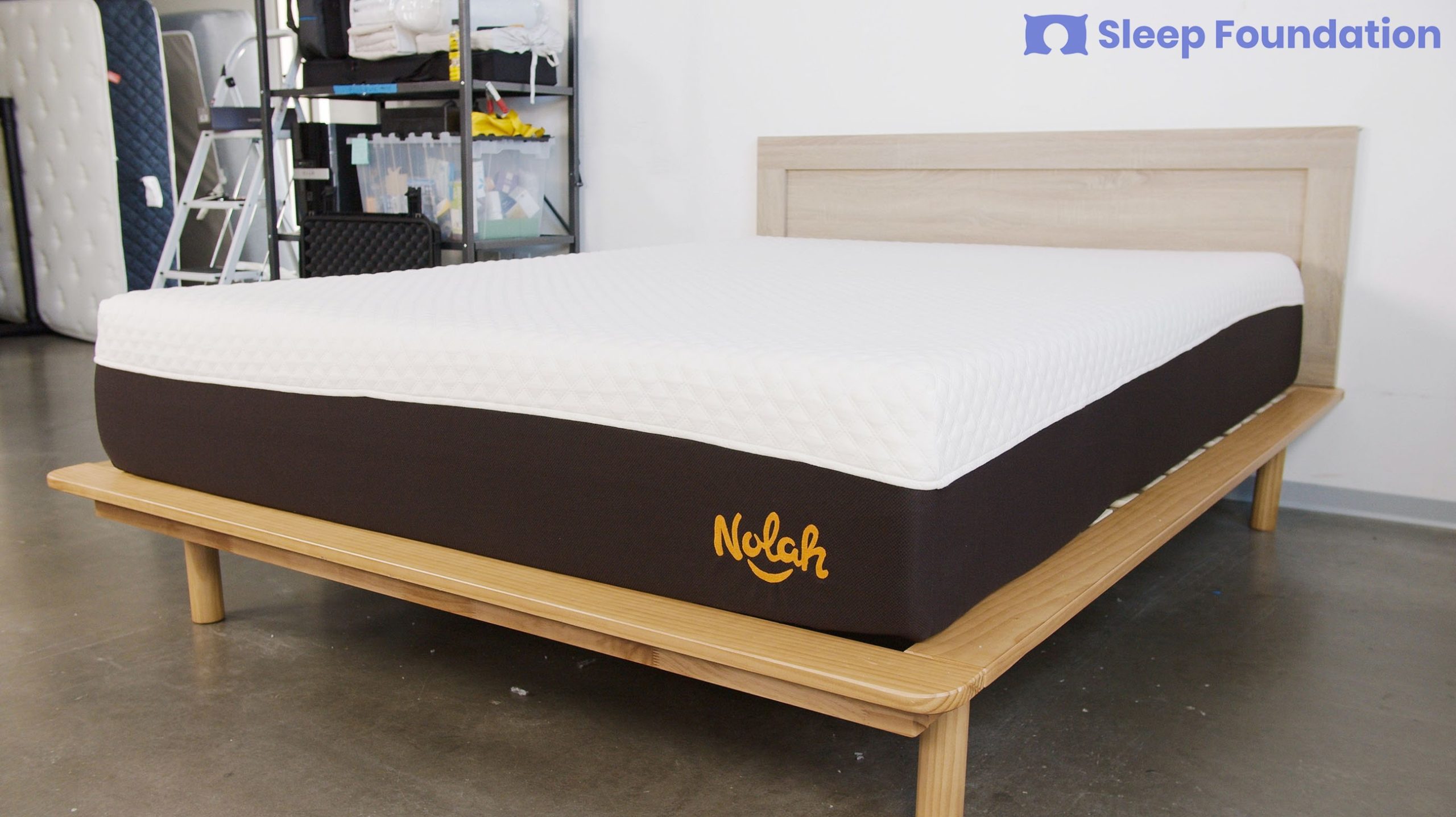
:max_bytes(150000):strip_icc()/SleeponLatex-b287d38f89374e4685ab0522b2fe1929.jpeg)

